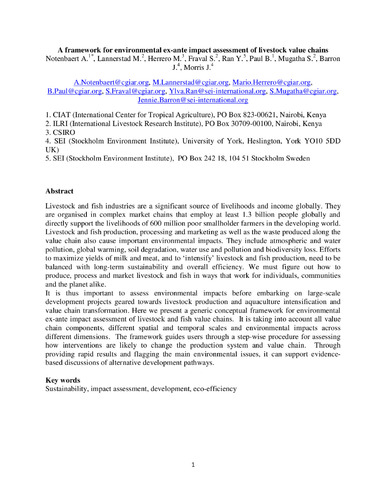A framework for environmental ex-ante impact assessment of livestock value chains
Livestock and fish industries are a significant source of livelihoods and income globally. They are organised in complex market chains that employ at least 1.3 billion people globally and directly support the livelihoods of 600 million poor smallholder farmers in the developing world. Livestock and fish production, processing and marketing as well as the waste produced along the value chain also cause important environmental impacts. They include atmospheric and water pollution, global warming, soil degradation, water use and pollution and biodiversity loss. Efforts to maximize yields of milk and meat, and to „intensify‟ livestock and fish production, need to be balanced with long-term sustainability and overall efficiency. We must figure out how to produce, process and market livestock and fish in ways that work for individuals, communities and the planet alike.
It is thus important to assess environmental impacts before embarking on large-scale development projects geared towards livestock production and aquaculture intensification and value chain transformation. Here we present a generic conceptual framework for environmental ex-ante impact assessment of livestock and fish value chains. It is taking into account all value chain components, different spatial and temporal scales and environmental impacts across different dimensions. The framework guides users through a step-wise procedure for assessing how interventions are likely to change the production system and value chain. Through providing rapid results and flagging the main environmental issues, it can support evidence-based discussions of alternative development pathways.

